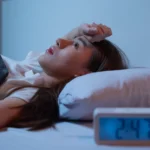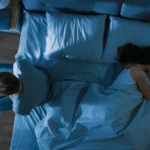Online Therapies
Online therapy has emerged as a viable and effective option for treating anxiety disorders. Many online therapy platforms utilize Cognitive Behavioral Therapy (CBT), which is known for its effectiveness in addressing anxiety. Online therapy often yields similar results to traditional in-person therapy, making it a convenient and accessible option for many.
Patients can often begin to see improvements in their mental health within a few weeks of engaging in online therapy, although some may require longer support. Accessing online therapy typically involves completing an intake form before scheduling a session with a therapist via video, phone, or messaging.
Platforms like TherapyDen, BetterHelp, and Talkspace offer various subscription plans, providing multiple ways for clients to communicate with their therapists through talk therapy. Designed to be inclusive and accessible, these services ensure individuals from diverse backgrounds can find the support they need.
Online therapy provides a flexible and effective way to access mental health support, particularly for those who may have difficulty attending in-person sessions.
Treatment Options for Specific Populations
Tailored treatment options are essential for effectively managing anxiety disorders in diverse populations. Anxiety disorders tend to require specialized approaches to ensure that individuals receive the support they need, whether they are children, adolescents, pregnant women, or new mothers. These tailored strategies can help to treat anxiety disorders effectively.
The following subsections explore treatment options for children and adolescents, as well as for pregnant and postnatal women. These tailored approaches highlight the importance of considering the unique needs and circumstances of different populations.
Treating Children and Adolescents
Anxiety disorders such as separation anxiety disorder and social phobia, including social anxiety disorder, are common among children and adolescents. Effective treatments for these conditions often include a combination of SSRIs (selective serotonin reuptake inhibitors) and Cognitive Behavioral Therapy (CBT), which can also address anxiety and depression. This combination has been shown to be particularly effective in treating anxiety disorders in young people.
The inclusion of separation anxiety disorder in the diagnostic and statistical manual highlights its prevalence and importance among youth. Tailored treatment plans that incorporate both medication and therapy provide comprehensive care, addressing both the psychological and physiological aspects of anxiety in children and adolescents.
Pregnancy and Postnatal Anxiety
Anxiety symptoms are prevalent in approximately 14% of childbearing women. Managing anxiety during pregnancy and the postnatal period is crucial, as untreated anxiety can pose risks to both the mother and the child. Cognitive Behavioral Therapy (CBT) is recommended as a primary treatment option for pregnant women experiencing anxiety.
Certain factors could raise the likelihood of experiencing anxiety symptoms during pregnancy, which may indicate an increased risk of having a history of specific phobia, generalized anxiety disorder (GAD), separation anxiety, or obsessive-compulsive disorder (OCD). Pregnant women should seek help from healthcare professionals such as their GP, obstetrician, or psychologist to manage their anxiety effectively.
Alternative and Complementary Therapies
Alternative and complementary therapies can play a supportive role in managing anxiety disorders. Nutrients like Vitamin D, B vitamins, omega-3, and omega-6 may help with anxiety reduction. These nutrients are considered beneficial in managing anxiety symptoms. Mindfulness meditation has also been linked to modest improvements in anxiety symptoms.
Yoga, an ancient practice, combines physical movement, meditation, and breathing exercises, making it helpful for reducing stress and anxiety. Kava extract can provide short-term anxiety relief but poses risks of serious liver damage. Lavender essential oil has been found effective for anxiety in some studies, particularly when ingested.
Massage therapy has shown mixed results in reducing anxiety, particularly in cancer patients. Other complementary methods recommended for clinical anxiety include acupuncture, osteopathy, and homeopathy, though results vary. These therapies can complement traditional treatment strategies, potentially enhancing their effectiveness for managing anxiety.
Intensive Outpatient Program (IOP) at Atlantic Behavioral Health
Atlantic Behavioral Health, located in Wilmington, Massachusetts, offers comprehensive psychiatric and mental health services. Their Intensive Outpatient Program (IOP) is a licensed mental health facility in Massachusetts that may be covered by health insurance.
The IOP includes both individual therapy and group sessions, fostering a supportive environment for patients and support groups. Ongoing evaluations from psychiatric providers help monitor progress and adjust treatment plans as needed.
Individuals unsure about their insurance coverage for the IOP can provide basic details about their insurer to verify coverage. The comprehensive nature of the IOP at Atlantic Behavioral Health ensures that individuals receive the support they need to manage their mental health effectively.
Seeking Professional Help
Seeking professional help is crucial when severe anxiety significantly disrupts everyday life. Many individuals may not recognize that they may feel anxious, and irritability and emotional instability are symptoms of anxiety that require treatment. Anxious feelings can lead to unhealthy coping mechanisms, including substance abuse, and can often progress to other mental health issues, such as excessive anxiety and depression, making anxiety worse.
The U.S. Preventive Services Task Force recommends routine screening for anxiety disorders in adults aged 19 to 65, including pregnant women. This proactive approach helps in early identification and treatment, preventing the escalation of symptoms.
Atlantic Behavioral Health offers a range of services to help individuals struggling with anxiety through therapy and medication management. Seeking psychotherapy is highly recommended for those who prioritize their mental health, as noted by the American Psychiatric Association. The process of effectively managing anxiety typically requires time and patience, reflecting the complexity of the condition.
A comprehensive medical evaluation by a mental health professional, considering the patient’s medical history, family history, and patient’s history, is essential in developing an effective treatment plan. This approach ensures that individuals receive the right combination of therapies to manage their anxiety effectively. Mental health professionals play a crucial role in this process.
There are numerous effective treatment options available for managing anxiety disorders. Cognitive Behavioral Therapy (CBT) and Exposure Therapy remain cornerstone therapies, while pharmacological treatments provide necessary support for severe cases. Combining therapies often yields the best outcomes, reducing relapse rates and improving symptom management. Self-help techniques and online therapies offer additional support, making treatment more accessible.
Specialized treatment options for specific populations, such as children, adolescents, and pregnant women, ensure that everyone receives the care they need. Alternative and complementary therapies can enhance traditional treatments, and the Intensive Outpatient Program (IOP) at Atlantic Behavioral Health provides comprehensive care for those in need. If anxiety is impacting your life, seeking professional help is a vital step towards recovery. Remember, managing anxiety is a journey, and with the right support and treatment, it is possible to live a fulfilling and balanced life.
Frequently Asked Questions
What is the most effective psychotherapy for treating anxiety disorders?
Cognitive Behavioral Therapy (CBT) is widely recognized as the most effective psychotherapy for treating anxiety disorders. Its structured approach helps individuals identify and change negative thought patterns, leading to significant improvements in anxiety management.
How does exposure therapy help in managing anxiety?
Exposure therapy aids in managing anxiety by gradually confronting feared situations, which reduces avoidance behaviors and cultivates a more adaptive response to anxiety-provoking stimuli.
What are the primary medications used for treating anxiety disorders?
The primary medications for treating anxiety disorders are selective serotonin reuptake inhibitors (SSRIs) and serotonin norepinephrine reuptake inhibitors (SNRIs). These options are widely recognized for their efficacy in managing anxiety symptoms.
Are there any complementary therapies that can help with anxiety?
Complementary therapies like mindfulness meditation, yoga, and vitamin supplements, such as Vitamin D and B vitamins, can effectively reduce anxiety. Incorporating these practices into your routine may provide beneficial support for managing anxiety.
What services does Atlantic Behavioral Health offer for those struggling with anxiety?
Atlantic Behavioral Health provides a range of psychiatric and mental health services to assist individuals struggling with anxiety, including therapy and medication management. These services aim to support and improve the overall well-being of clients.







